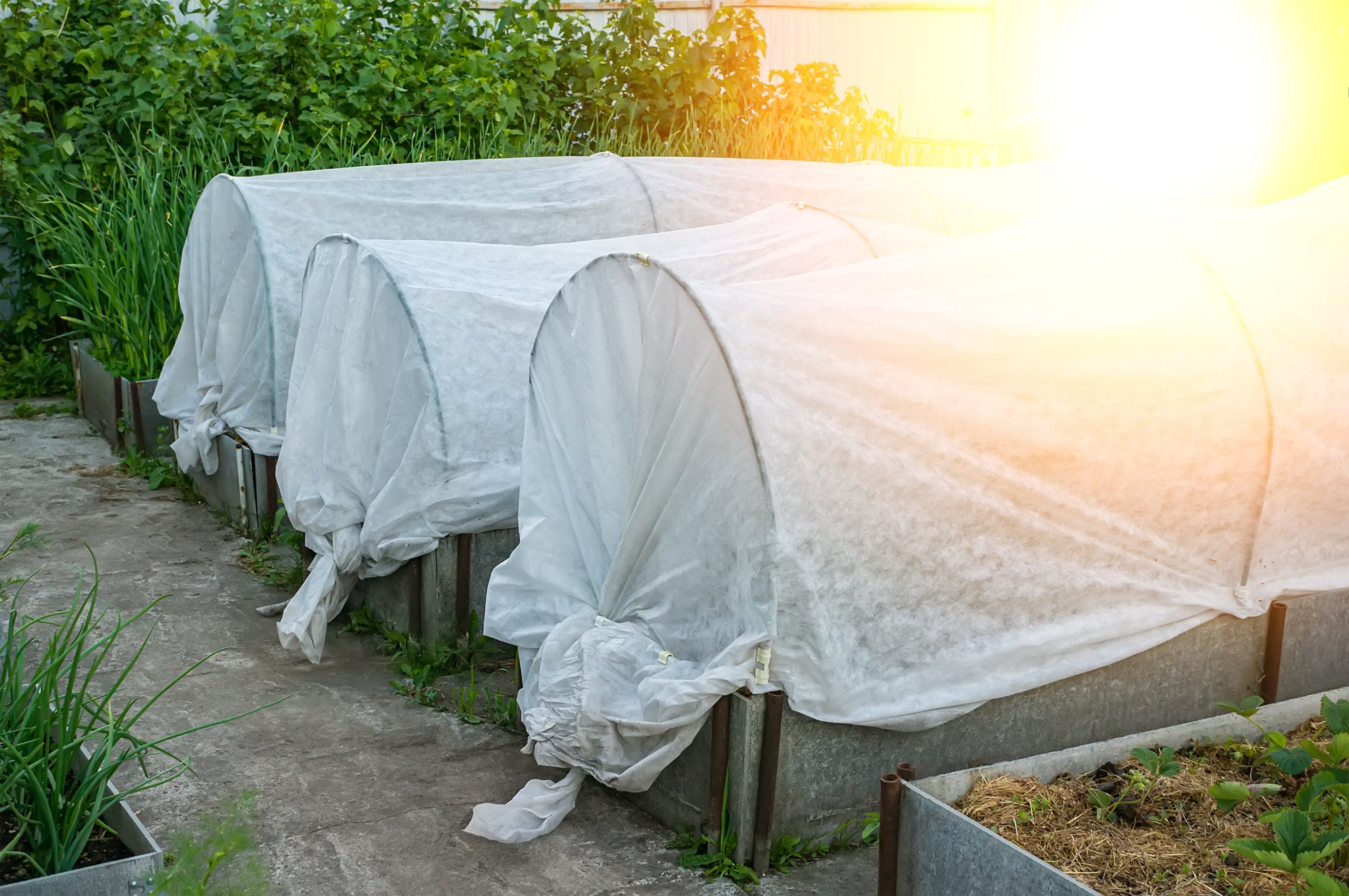The first tomato in your garden is finally ripening. It survived the harsh arid conditions, strong winds, and being eaten by wildlife. But soon, a frost warning will go into effect, signifying the loss of your tomato. If you’ve gardened in the Eagle River Valley before, this situation might be frightfully familiar. Thankfully, there are a few ways to prevent losing your produce and protecting the rest of your garden.
For vegetable and produce gardens, many plants are annuals, meaning that they will survive this season and then need to be replanted from seed next year. The main goal then, when cold temperatures threaten, is extending the life of the existing plants in your garden. For lots of garden favorites, like tomatoes, peppers and basil, particular care needs to be taken. These plants thrive in warmer temperatures and start lowering production or dying when nighttime temperatures are in the 40s.
If your garden only has a few of these types of plants, individual covers, known as cloches, can be the best solution. Purchased or handmade, the cover should capture the air around the plant, acting like a small greenhouse. The soil and air will warm throughout the day, and then take longer to cool down in the evening. If you are leaving these cloches on during the day it is a good idea to have a vent on the top so the plant doesn’t overheat. A milk jug, for example, is a great homemade cloche. Cut the bottom off and place over the plant, and then keep the lid open for venting purposes.

For larger gardens, fabric covers are more frequently used. These could be bedsheets, tarps, or specially purchased gardening cloth. Using PVC or metal hoops will help prevent fragile plants from being crushed. Unfortunately, even the greatest care given to your garden won’t prevent freezing. Once nighttime temperatures dip more than a few degrees below freezing even the best solutions won’t work well, as cloches and fabric will only protect a plant down to around 28 degrees Fahrenheit. Once nighttime temperatures dip below 28 degrees for more than an hour or two at night, this is considered a hard frost or killing frost.

If you’re going the route of letting nature take its course, or hard frosts threaten, there are a few things you can do to prepare your garden for next year. Rebuilding garden soil by planting cover crops, laying down mulch, or amending the soil with compost are all great options. Planting garlic is also a fall garden task here in the mountains. The garlic will start to grow under the soil throughout the winter, and you can expect a July harvest if you plant in September or October.
Another great option is to plant perennials. Most plants will specify fall planting instructions, but generally, this should be done a few weeks before consistent hard frosts. Many nurseries and online vendors will provide information about the Hardiness Zone(s) in which the plant is best suited. This refers to the USDA Plant Hardiness Zones based on the lowest nighttime temperatures experienced in the area. In the Eagle River Valley for example, Eagle rests in zone 5a ( -20 to -15 °F), and Vail is one zone lower in 4b (-25 to -20 °F).
Whatever you choose to do in your garden this fall, don’t wait! Cold temperatures will be arriving soon. Happy gardening!
Erin Baumann is the Sowing Seeds Coordinator at Walking Mountains Science Center. When not gardening, you can find her in the kitchen, making clothing, or out on a bike ride.








